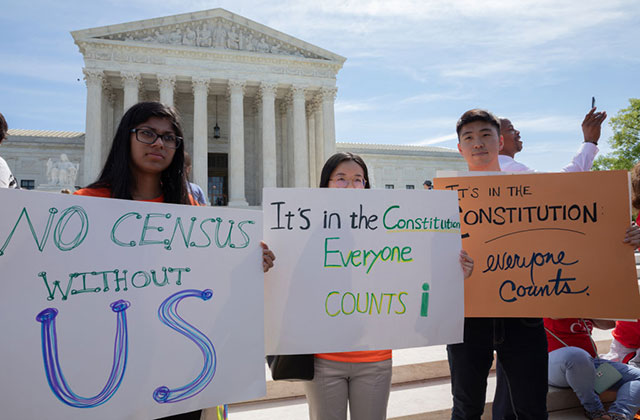The count for the 2020 U.S. Census ends today (October 15), more than two weeks before the October 31 extension just tossed out by the U.S. Supreme Court. And as Colorlines previously reported, the impact will largely be felt within communities of color.
Last month, a California federal judge ordered the White House to extend its September 30 deadline through October due to the pandemic or “people who believe they could submit their responses in October would not be counted,” reported Stateline, an initiative of the Pew Charitable Trusts. But the Supreme Court reversed that decision yesterday (October 14).
In her dissenting opinion, Justice Sonia Sotomayor noted that President Donald Trump wished to exclude undocumented immigrants from the Census and wrote that “significantly, the percentage of nonresponses is likely much higher among marginalized populations and in hard-to-count areas, such as rural and tribal lands.” Sotomayor continued, “The harms caused by rushing this year’s census count are irreparable. And respondents will suffer their lasting impact for at least the next 10 years.”
The justice’s dissent capture how many citizens and advocates are feeling about not having all people in all communities represented, which is crucial for federal funding and the number of congressional seats a state can receive. When it comes to struggling or chronically underfunded communities, being counted in the Census isn’t just a constitutional right. It can be life-altering.
New York City resident Flor Barrio, who lives in the largely Latinx- and Asian-American area of Elmhurst, Queens, believes that previous undercounts left her area unprepared for the pandemic.
"In March, during the COVID-19 pandemic, we saw that the hospital couldn’t cope with the demand,” Barrio told NBC News. “And I think it’s because there wasn’t an accurate count of all the people they’re suppose[sic] to serve in that area.”
Stephen Roe Lewis, governor of the Gila River Indian Community, said in a statement reported by NPR and Tucson Sentinel that yesterday’s U.S. Supreme Court was "a bitter pill for us to swallow here on the Reservation. … With no explanation or rationale, a majority simply decided that our people do not deserve to be counted, thus continuing a long history of leaving Indian peoples at the margins of the U.S. society at large and economy."
As all internet Census surveys must be submitted by 11:59 p.m. Hawaii Standard Time, visit 2020Census.gov to get counted today.
